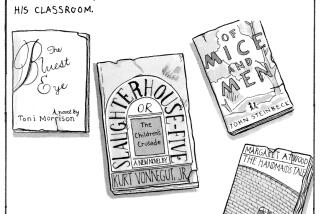E-books can interfere with sleep, study finds
If you’re looking forward to catching up on some sleep over the holidays, you might want to put down your e-reader and pick up an actual printed book.
A small study conducted by sleep medicine researchers at Harvard Medical School indicates that e-books can interfere with readers’ sleep cycles. According to the Guardian, “Study participants reading a light-emitting ebook took on average almost 10 minutes longer to fall asleep and said they were less sleepy an hour before bedtime than they were reading a paper book.”
The study involved “12 healthy young adults” who were asked to read either a printed book or an e-book before going to sleep. The e-book readers experienced less rapid eye movement sleep than their printed-book-reading counterparts, and were less alert the mornings after.
The findings don’t apply to the original Amazon Kindle, according to physician and professor Charles Czeisler, one of the researchers, because that e-reader doesn’t emit light. The same goes for other e-ink readers such as Barnes & Noble’s Nook, the Kobo and the original Sony Reader.
But users of newer e-readers and tablet computers, including the Kindle Fire and iPad, are at risk for less restful sleep, according to the study.
It’s not just healthy sleep cycles that are at risk, say the researchers, noting “recent evidence linking chronic suppression of melatonin secretion by nocturnal light exposure with the increased risk of breast, colorectal and advanced prostate cancer associated with night-shift work.”
The study might prove more relevant to older readers than younger ones, however. According to recent studies by Nielsen Book, teenagers much prefer printed books over e-books.
More to Read
Sign up for our Book Club newsletter
Get the latest news, events and more from the Los Angeles Times Book Club, and help us get L.A. reading and talking.
You may occasionally receive promotional content from the Los Angeles Times.






